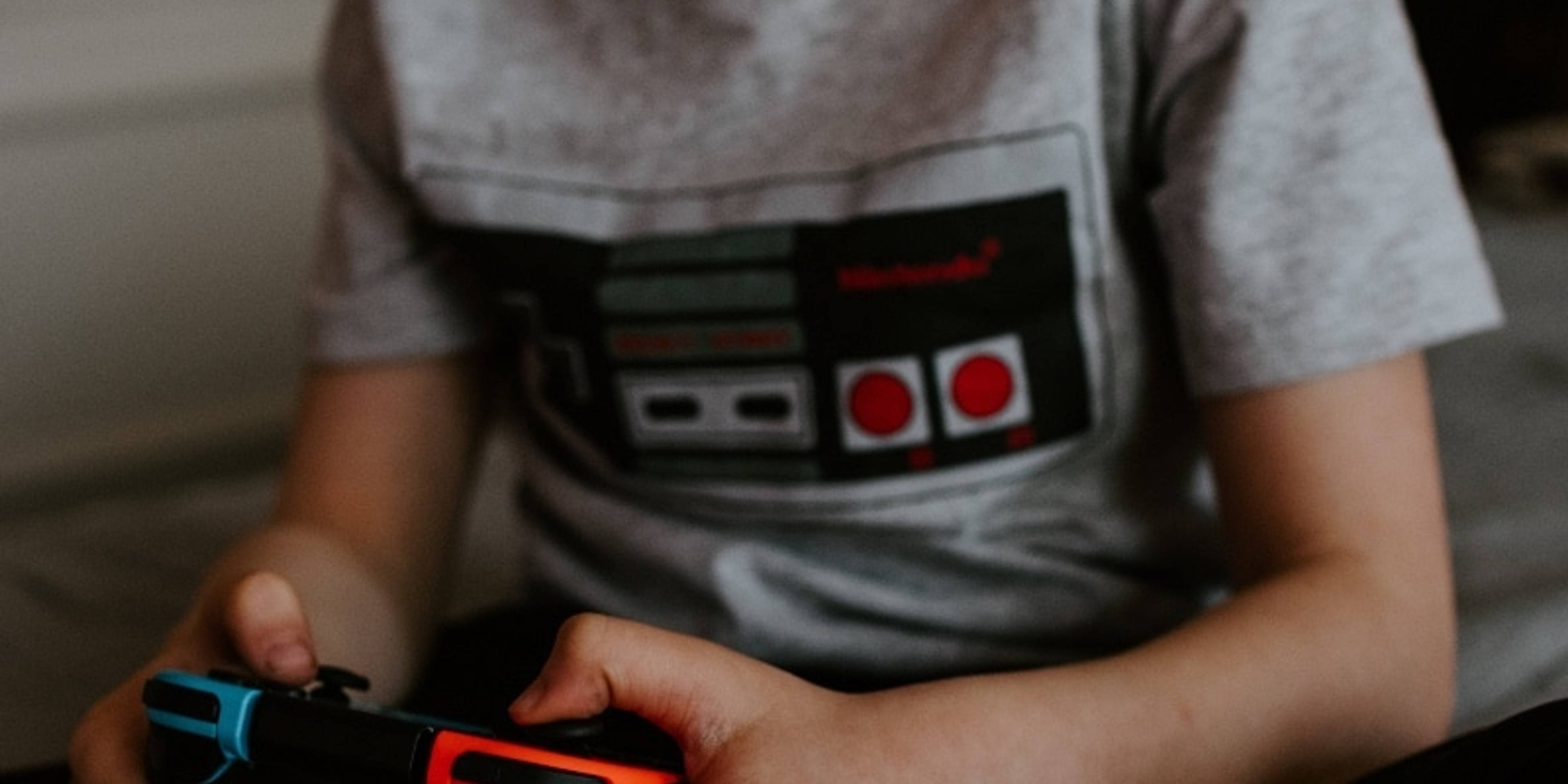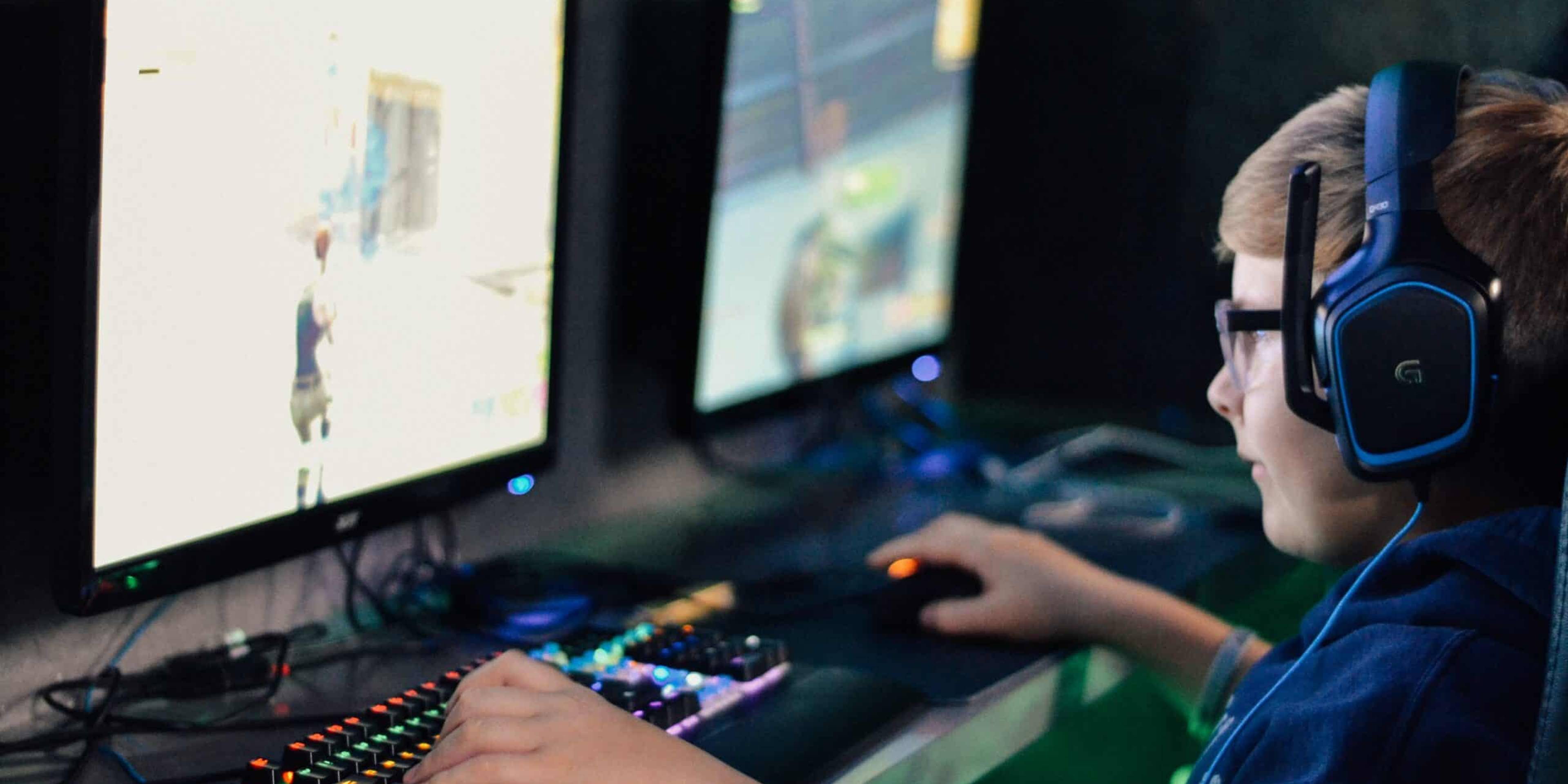February 09, 2023
Does gaming heavily have a negative impact on teens’ wellbeing?
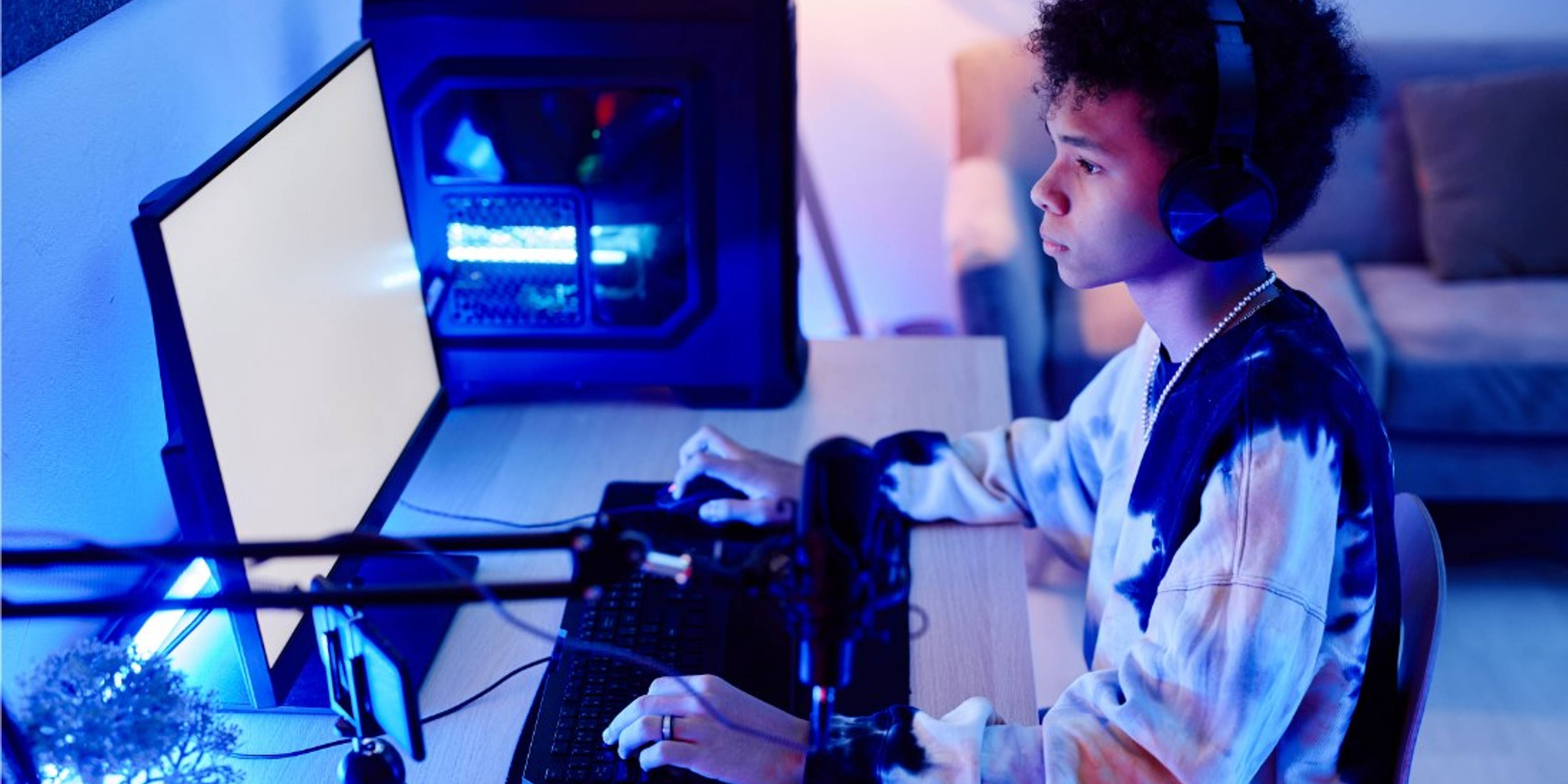
In recent decades, there has been a shift to screen-based and web-based gaming activity. This has led to concerns in commentaries and the popular press about how gaming might affect children and teens. Despite decades of research into gaming and related psychosocial effects, questions remain about how best to identify what degree or context of gaming may be a cause for concern.
Along with her team, our Researcher of the Month, Dr Simona Skripkauskaite, aimed to classify young gamers into ‘gamer profiles’ based on their gaming behaviours and wellbeing, and distinguish between those engaging in adaptive versus maladaptive gaming patterns.
Results indicate that, whilst a substantial proportion of teens now spend much of their free time playing video games, for the vast majority gaming does not impact negatively on their wellbeing and is not related to mental ill-health. A small and important subgroup are more likely to show signs of problematic gaming and lower wellbeing. These are more likely to be girls who are gaming on their phones.
Summary
“The majority of young people spending much of their time gaming seem to be experiencing few negative effects with regard to their wellbeing.”
Dr Skripkauskaite used data from the OxWell Student Survey which asks 9-18 year old students in England over 200 questions on a range of wellbeing and mental health measures. In the June/July 2021 data collection, 12,725 participants from school years 8-13 answered questions on gaming. 3970 (31.2%) of these teens indicated that they played games on an electronic device for at least 3.5 hours a day.
As previous research suggests that over four hours of daily digital engagement or video gaming is more likely to indicate impaired psychosocial functioning, only those participants who played games for at least 3.5 hours per day were asked more detailed questions for inclusion in Dr Skripkauskaite’s study. These teens were asked how much they game on their phone and computer, their experiences with games in the preceding six months (the impact on their mood, levels of tolerance, any problems or conflicts), their mental wellbeing and some personal characteristics and experiences, including their age, gender, potential family risk factors, school experiences. They were also asked about specific gaming behaviours such as playing late at night, gambling or spending money on in-game purchases.
From this data, Dr Skripkauskaite distinguished six types of heavy gamers and found that most experienced no concurrent issues of concern with their wellbeing or mental health. Reassuringly, 44% of the sample was found to be adaptive computer gamers. Though they gamed a lot (on computers more than on phones), they had a medium level of control over their gaming and had the highest levels of wellbeing, higher, in fact, than some children who reported not gaming at all. For this large group of teens, gaming seems to be a healthy activity even when they play for multiple hours per day. This correlates with a growing body of recent evidence from large-scale studies showing that direct negative links between the amount of time a teens spends engaging with digital technology and their wellbeing or mental health are either nonexistent or weak.
However, the study also highlights individual differences. There are known to be a small proportion of teens (2% – 9%) who do exhibit ‘problematic’ gaming behaviours, such as impaired self-regulation and a loss of control over their gaming. This kind of problematic gaming is known to correlate with lower wellbeing, aggressive behaviours, depression, loneliness and poor sleep quality. In this study, 6% of gamers were categorised as ‘maladaptive computer gamers’ and a further 2% were categorised as ‘maladaptive phone gamers’. These teens had poor control over their gaming and low levels of wellbeing, particularly the teens playing games a lot on their phones. The maladaptive phone gamers were mostly female. They were also more likely to report high levels of anxiety and having experienced abuse or neglect.
Gaming is increasing in popularity among girls and other studies have shown that female gamers predominantly play on their mobile phones, rather than computers or consoles. It’s possible that female gamers who struggle with lower wellbeing because of previous traumatic experiences seek out phone gaming as a coping mechanism. Previous research has shown that extrinsic or escapist motives, rather than playing for fun, are more likely to relate to negative gaming consequences. Further research is required to understand causal mechanisms and Dr Skripkauskaite notes that it is important to learn more about the groups of teens with poor control of gaming and co-occurring low levels of wellbeing in order to support them if their difficulties become significant.
Implications
“Findings suggest that certain groups of gamers are at greater risk for co-occurring gaming and wellbeing issues.”
Implications for parents
Parents are often concerned about the amount of time that their children spend on screens. It’s reassuring to remember that, whilst many children and teens choose to game a lot, in and of itself, this doesn’t seem to be impacting negatively on the wellbeing of most individuals. However, significant phone gaming, particularly in girls, may be linked with poorer mental health. If you are concerned that your child is gaming excessively or problematically, try to focus on the gaming as a symptom, rather than the cause of any issues. Consider their motivations for gaming a lot. Are they enjoying social time with friends online or are they gaming alone for hours? What sort of games are they playing? Can you join in and play too? What else is going on in their lives? Lean into their experiences and open up lines of communication.
Implications for mental health practitioners
Rather than targeting time spent playing video games, using video gaming as a tool presents an opportunity for more affordable and less stigmatising mental health interventions for teens.

Dr Simona Skripkauskaite
Postdoctoral Researcher at the University of Oxford.
Dr Simona Skripkauskaite works for Oxford’s Co-SPACE study (COVID-19: Supporting Parents, Adolescents and Children During Pandemics) and the OxWell Student Survey, where she has been focusing on effects of gaming and social media on adolescent mental health. Dr Skripkauskaite also leads a project on ‘Learning from the trajectories of mental health challenges for children, young people and parents over the course of the Covid-19 pandemic’, which will compare how families have been affected by the pandemic in the UK and Japan. Overall, her research to date has aimed to identify developmental processes underlying successful functioning, but has ranged across child and adolescent mental health, emotion regulation, and parent-child relationships, as well as neurodiversity, visual attention, and perception.
Dr Simona Skripkauskaite
Postdoctoral Researcher at the University of Oxford.
Related Resources
Scroll our research gallery

Jan 19, 2026
The power of reading: books, vocabulary and learning
Did you know that 2026 is the UK’s National Year of Reading? This long-overdue initiative reflects growing concern and renewed commitment around children’s reading and literacy. As Dr Maria Korochkina, our latest Researcher of the Month, puts it: “The ability to read opens up worlds. Reading enables children to progress into post-primary education and provides the basis for lifelong learning and prosperity into adulthood”. Frequent readers tend to have a stronger understanding of both their own and others’ emotions. They are often better able to communicate these emotions, a skill linked to higher emotional intelligence and improved mental wellbeing. Reading also encourages cause-and-effect reasoning and helps children imagine scenarios beyond the immediate moment - developing the skill of -future-thinking'. A rich vocabulary underpins learning across the school curriculum, strengthens thinking and communication skills, and predicts both academic attainment and later life outcomes. Research consistently shows that the most effective way to build vocabulary is through reading. However, learning to read well is not quick or effortless. The journey to skilled reading typically spans around ten years, requiring high-quality classroom instruction alongside sustained practice through independent reading. For many children, this process is painstaking, demanding consistent teaching, encouragement and opportunity over time. Against this backdrop, recent evidence presents a worrying picture. Fewer children are reading for pleasure than ever before. In 2024, only one in three UK children and young people aged eight to 18 reported enjoying reading in their free time. Even more strikingly, just one in five said they read daily for pleasure, the lowest level recorded since the National Literacy Trust began collecting this data in 2005. This matters because reading ability and reading enjoyment are deeply intertwined. Children who find reading effortful are far less likely to choose to read independently. Dr Korochkina’s research highlights how early reading experiences shape later habits: difficulties with phonic and morphological knowledge in the early stages of reading acquisition can have a snowball effect, reducing confidence, fluency and motivation over time. Her work also offers a powerful note of optimism. Books that children actively choose to read, including contemporary, popular texts, provide rich opportunities to develop vocabulary, particularly when children read widely. Ensuring access to a diverse range of engaging reading material, alongside strong early instruction, can play a vital role in building both reading skill and reading motivation. Fostering confident, motivated readers requires long-term commitment. It is not enough for children simply to have books available to them. They need skilled teaching, time, practice and a culture that values reading as both a skill and a pleasure.

Dec 15, 2025
Crossing the line into cybercrime
As the most digitally connected generation so far, young people today face new challenges. Our latest Researchers of the Month, Professor Davidson and Dr Farr, have found that in the last decade, an increasing number of young people (particularly young men) have committed serious cybercrime offences, particularly hacking and money laundering. Their new book, written following a large research project funded by the European Union’s Horizon 2020 research and innovation programme, seeks to understand the drivers behind this trend. It explores a range of potential factors that may lead young people to engage in risky online behaviours, and to identify effective pathways for prevention.

Nov 16, 2025
Supporting Children’s Use of AI
Children and young people are now growing up surrounded by AI, and the landscape is shifting fast. In the UK, recent data from Ofcom and Internet Matters suggests that around half of children aged 8–17 regularly use generative AI tools such as ChatGPT, Bard or Snapchat’s MyAI. Many describe these interactions as feeling like conversations with a friend. A recent report from Common Sense Media found that 33% of teens had actually chosen to talk to an AI companion instead of a real person about something important or serious. Whether children are asking voice assistants to answer their questions, relying on chatbots for bedtime stories, using learning apps for revision or engaging with large generative AI models, it’s essential to remember that most of these systems were built with adults in mind, not children. They often assume levels of attention, memory and emotional maturity that younger users simply don’t have. Even older children and teenagers, who increasingly use AI as a supportive confidante (often without adult supervision or knowledge), are still learning to navigate boundaries around trust, identity and emotion. Our latest Researcher of the Month, Dr Nomisha Kurian, wants this to change. She has developed a new framework called Developmentally Aligned Design (DAD), which outlines how AI can be built with children’s needs, vulnerabilities and strengths at its core. She also chatted to us at Tooled Up, sharing practical tips on recognising when children may be relying too heavily on AI for emotional connection, how to talk to them about healthy boundaries, and how parents and educators can help children and young people use AI tools safely, creatively and critically.
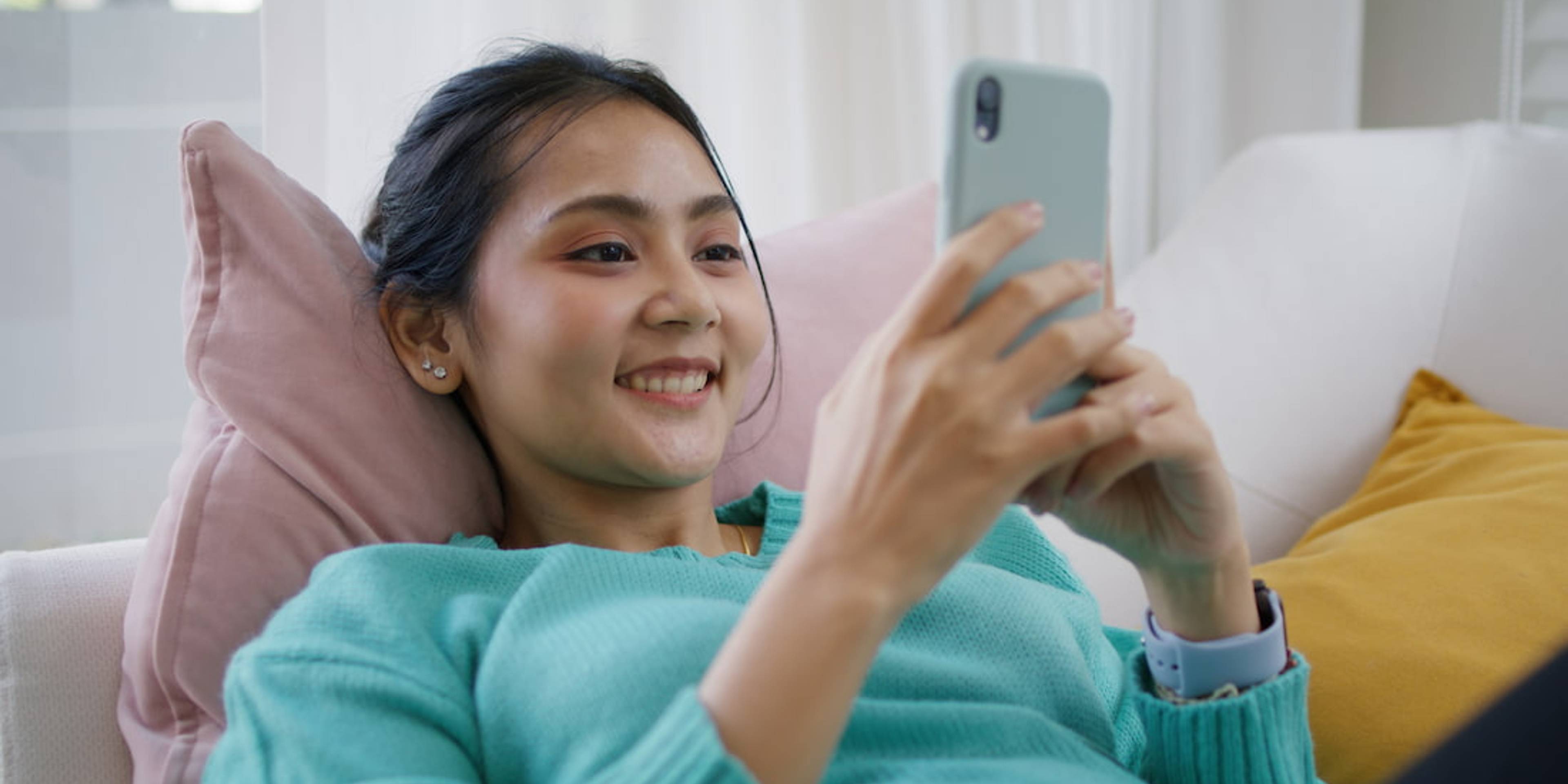
Oct 16, 2025
Algorithmised Girlhood: Teenage Girls and TikTok
As part of the early stages of her PhD study, our latest researcher of the month, Chiara Fehr, ran several focus groups about experiences of TikTok with eight 17 year old girls. Using creative methods, such as ‘TikTok show and tells’ a collaging session and a utopic mapping exercise, Chiara is exploring whether dominant narratives around growing up in a digitised world reflect the real life experiences of teens, and has summarised her findings so far in a recent article.
![“[They use devices] alllllllll day long”. What do children think about our tech use?](https://cdn.sanity.io/images/jxfh43in/content-prod-d2c/79f219275088655f59590f61ff29b6bc8b0d77f8-1100x733.jpg?w=3840&h=1920&q=70&fit=crop&crop=center&auto=format)
Sep 09, 2025
“[They use devices] alllllllll day long”. What do children think about our tech use?
We're all used to reading about children and young people's increasing use of digital tech. But what about adults' use? And what impact might our tech use have on family life? Parents today are spending an unprecedented amount of time on their devices. One study found that parents spend an average of nine hours per day engaged with screen devices. Over four hours of this is on smartphones, averaging 67 phone checks per day. Despite children's central role in family life, their voices and perspectives on the device use of the adults around them have been largely neglected in research. Along with colleagues, our latest Researcher of the Month, Professor Cara Swit, has published a fascinating study exploring the experiences and perceptions of children aged six to nine about their parents’ device use at home and its impact on them.

Aug 13, 2025
Students’ views on smartphone bans
In recent years, banning or restricting children’s access to smartphones and social media has grasped the attention of policy makers, schools and parents. A number of countries, including France, Turkey, Norway, Sweden, and regions of the US and Canada have introduced laws, policies or guidance for schools to ‘ban’ or heavily restrict the use of phones. Within Ireland, in 2024, the Minister for Education announced her intention to introduce smartphone bans in post-primary schools, whilst at the same time acknowledging that individual schools are best placed to decide on the scope and scale of restrictions for their students. Whilst these bans aim to protect children from harm, and teachers often anecdotally report seeing benefits, evaluations of existing research highlight a lack of evidence on their efficacy. At the moment, we simply don't know enough about the impact of bans. Evidence is hampered by the fact that technological developments and technology use is moving at a faster pace than research. Some studies suggest that bans are beneficial to academic outcomes and mental wellbeing. Others suggest no effects. However, many studies have methodological weaknesses, use small samples or retrospective data, and can't ascribe causal mechanisms. Our latest Researcher of the Month, Dr Megan Reynolds, has recently published a paper which explores young people's perspectives and experiences of smartphone bans in their schools. Unlike most previous research, it centres student voices in this high profile issue.

Jul 14, 2025
Do teens with mental health conditions use social media differently than their peers?
As Luisa Fassi, our new Researcher of the Month, comments, "The link between social media use and youth mental health is hotly debated, but hardly any studies look at young people already struggling with clinical-level mental health symptoms". In fact, Luisa's large systematic review and meta-analysis found that only 11% of papers published on the topic since 2007 focused on young people with clinical conditions. Her review also showed that the data used to evidence mental health conditions in these existing studies is not always strong or especially robust. Many report links between social media and mental health on the basis of short self-report questionnaires, where young people are asked about symptoms. Whilst this wasn't found as part of Luisa's review, it is also the case that very few papers in the field differentiate between different mental health conditions, or examine different symptoms or conditions (such as anxiety, ADHD or eating disorders) in isolation. To address this research gap, Luisa and colleagues have recently published a fascinating and nuanced paper. It analyses both quantitative and qualitative dimensions of social media use from a nationally representative survey of 3,340 teens in the UK aged between 11 and 19 years old, which was conducted by NHS Digital in 2017. Rather than gathering mental health data from self-report questionnaires, the young people in the survey underwent a full clinical screening, which included interviews with the young people, their parents and teachers. Information about social media use came from questionnaires completed by participants. They were not asked about specific platforms. Luisa used this data to gather novel insights into how social media and mental health are related in teens who both meet and do not meet diagnostic criteria for a wide range of mental health conditions. The study does not establish any causal links, but it does reveals a range of differences between young people with and without mental health conditions when it comes to social media.

Jun 17, 2025
Navigating the feed: younger adolescents' reflections on algorithmically curated social media
Our latest researcher of the month, Roxana Pomplun, has investigated the interactions, experiences and perceptions of younger adolescents, aged 11, 12, and 13, with algorithmically curated platforms such as TikTok, YouTube Shorts, Spotlight on Snapchat and Reels on Instagram. These kinds of platforms use algorithms to personalise and tailor feeds, harnessing user data to suggest content that the individual is most likely to be interested in and engage with. As such, young people have little control over what they are seeing in their feeds. Tech companies are not yet required to be transparent about the data that they are collecting, but it tends to include demographic information such as age, gender or location, along with use patterns. Whilst these sites dominate the digital lives of tweens and teens, until now they have received little dedicated research attention, particularly in relation to younger users, with most existing studies focusing on older teens. Whilst we know that most social media platforms have age limits of 13, we also know that many younger children are active users, particularly of algorithmically curated platforms like TikTok and YouTube Shorts. Given that early adolescence is a life phase marked by critical neurological development, identity development and heightened susceptibility to mental health issues, deepening our understanding of how younger adolescents engage with social media is vital. Roxana's qualitative research, where a group of young people eloquently explore their own experiences and perceptions, broadens our knowledge of social media use within an age group that appears increasingly aware of the digital influences shaping their online experiences, yet which is still in need of support to fully navigate these ecosystems.

May 15, 2025
Looking beyond smartphone bans
Over the last year or so, there has been a surge in public concern around smartphones and social media. Banning or restricting children’s access to smartphones and social media has grasped the attention of policy makers, schools and parents. A number of countries, including France, Turkey, Norway, Sweden, and regions of the US and Canada have introduced laws, policies or guidance for schools to ‘ban’ or heavily restrict the use of phones. In the UK, there are proposals to raise the age of ‘internet adulthood’ from 13 to 16, and to ban smartphones in schools. The third reading of a private members’ bill on this topic will be heard in parliament in July. Whilst these bans aim to protect children from harm, recent studies highlight a lack of evidence on their efficacy. Along with a team of international experts, our latest Researcher of the Month, Professor Victoria Goodyear, argues that, in isolation, banning smartphone and social media access fails to equip children for healthy use of technology. She suggests that there is a need to shift debates, policies and practices away from a sole focus on restricting smartphone and social media access, toward an emphasis on nurturing children’s digital skills for healthy technology use, and a rights-respecting approach which is underpinned by age-appropriate design and education.
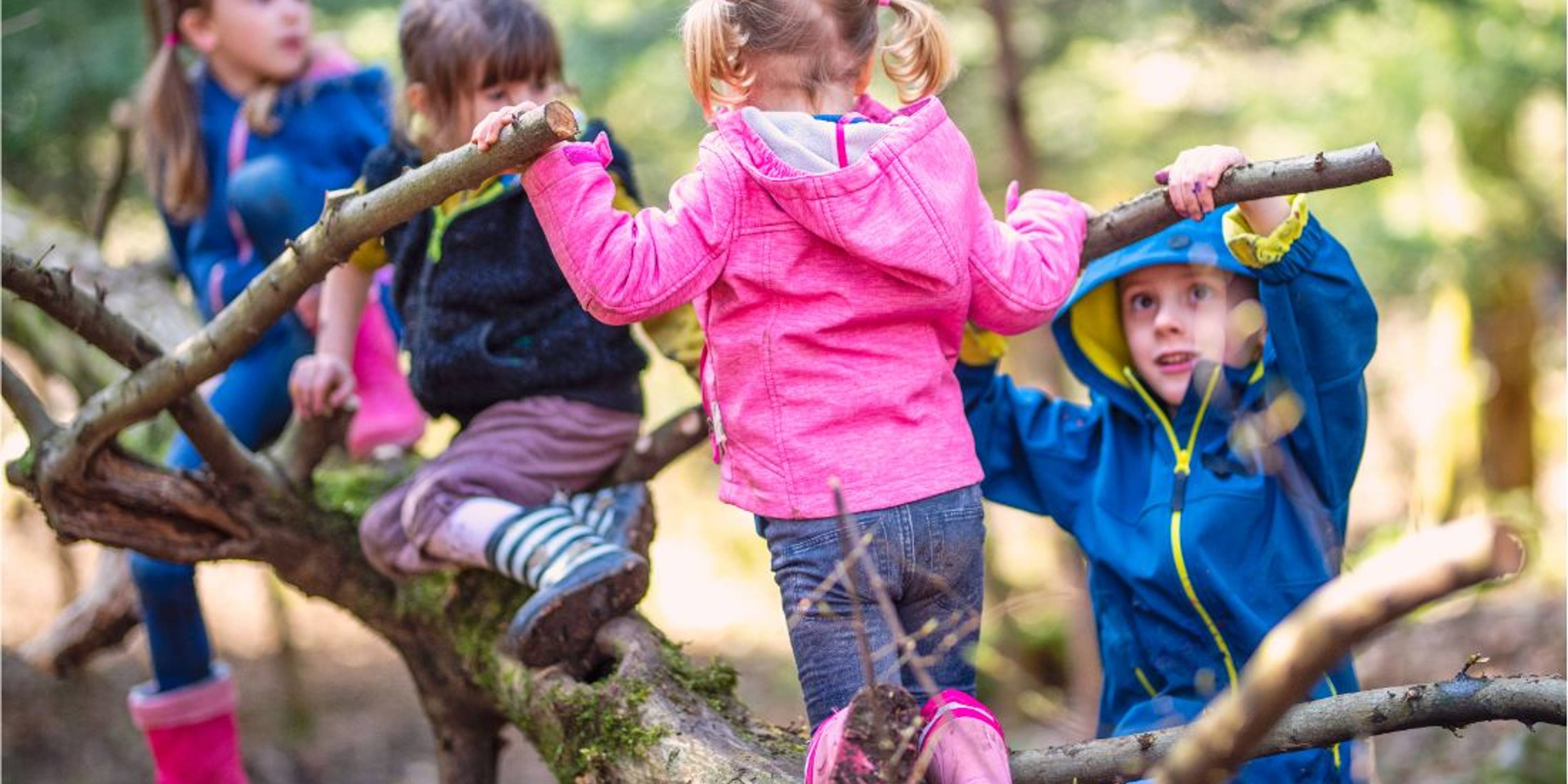
Apr 22, 2025
Encouraging adventurous play in the preschool years
Tune into our podcast interview with April's researchers of the month here. As well as providing numerous opportunities for exploration, joy, and expression, outdoor and adventurous play - the type of play that allows children to take age-appropriate risks - is associated with a range of positive health behaviours and outcomes. Yes, we're talking about the kind of play that might leave us adults with our hearts in our mouths at times, as children start to disappear up a tree, or engage in a rough and tumble game of chase. But its benefits are wide-ranging and known impacts include increased levels of habitual physical activity alongside better mental health and positive mood. In 2019, Dr Hesketh was involved in the creation of physical activity guidelines in the UK, which explicitly note the importance of outdoor play for children in the preschool age group. We know quite a lot about the play habits of school-aged children, but until now, have had significantly less data on their younger counterparts. Our Researchers of the Month, Dr Kathryn Hesketh and Professor Helen Dodd set out to discover how much time preschool-aged children spend playing in a range of indoor and outdoor spaces, and how adventurously they are playing within them. In the first national survey of play in children of this age, they asked over 1000 parents of two to four year olds about their children’s play habits, finding that, on average, children aged two to four spend around four hours per day (outside of educational settings) playing. Just under 50% of this was spent playing outdoors. Their findings shed interesting light on some inequalities in play, even in the youngest age group, which may exacerbate existing inequalities in health.

